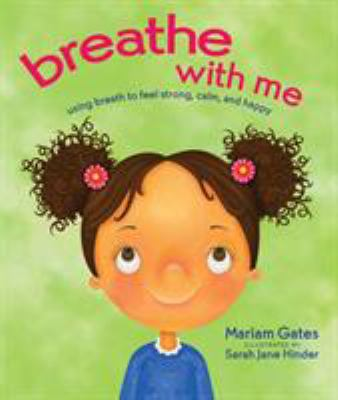8+ Ideas for Unwinding During Stress Awareness Month & All Year Long
Posted on April 3, 2024 at 6:00 am

By Melissa Rhoades
The phrase “April showers bring May flowers” has long served as a reminder of hope during tough times.
Rain is an apt metaphor for stress. A certain amount can be useful. And just as too much moisture can harm a plant, too much stress can create long-term health complications for a person.
April was designated as Stress Awareness Month in 1992 to educate people about the negative impacts of stress on overall health.
In this post, I share some information about becoming aware of your stress levels and some practical ways to reduce stress.
Why Stress Awareness Is Important
Stress doesn’t just affect the brain. It affects a person’s whole body. The National Library of Medicine’s website MedlinePlus explains that hormones released when you feel stress can raise your blood pressure, heart rate, and blood glucose (blood sugar) levels.
This “fight or flight” response can be helpful if you’re in short-term physical danger. But over time, it can damage your health.
All the following can cause harmful long-term stress, also known as chronic stress:
- Routine demands from work, school, family, finances, and other daily pressures that don’t go away.
- Sudden, difficult changes like divorce, illness, losing your job, or other life events with long-term impacts.
- Traumatic events that put you in danger like an accident, a war, natural disasters, and other frightening events. These events can lead to post-traumatic stress disorder (PTSD).
Chronic stress makes your body respond as if it’s in constant danger. This can lead to serious health conditions including depression, anxiety, heart disease, high blood pressure, and diabetes.
Since stress can become a routine part of our lives, we may not even be conscious of it. That’s why it’s important to tune in to your body and be attentive to the signs it may be giving you.
If you experience any of the following, you might be suffering from chronic stress:
- Frequently getting sick
- Stomach or digestive problems
- Trouble sleeping
- Headaches
- Feeling sad, angry, or easily upset
When to Seek Outside Help
MedlinePlus recommends getting help from a healthcare provider if you experience two weeks or more of severe symptoms, including the following:
- Trouble sleeping
- Eating changes that cause unwanted weight changes
- Moods that make it hard to get out of bed
- Difficulty focusing your thoughts
- Loss of interest in things you usually enjoy
- Feeling unable to do your daily routine
Always get help right away if you:
- Have suicidal thoughts
- Feel you can’t cope
- Are using drugs or alcohol more than usual
DIY Stress Reduction
For people hoping to reduce mild to moderate stress, self-help can be a great option. Here are several do-it-yourself options. Pick a few that sound like they have potential and give them a try!
Exercise Regularly
According to MedlinePlus, regular physical exercise reduces the risk of heart disease, helps control weight and blood sugar, improves mood and overall outlook, keeps your brain sharper as you age, improves sleep and sexual health, reduces the risk of some cancers, and increases longevity.
Check with your doctor before beginning any exercise program.
The library offers over 1,400 free resources to help you develop an exercise routine that fits your abilities, interests, and schedule. Here are just a few examples in print, DVD, and digital formats.
- Stretches and exercises to relieve chronic pain
- Strength training for beginners, women, men, seniors, cyclists, yogis, athletes, and more
- Low impact chair exercises
- Dance video workouts that include line dancing, ballroom, belly dance, hip hop, Bollywood, and more
- Martial arts
- Walking, running, and cycling
Practice Mindfulness
Mindfulness is a mental state achieved by focusing on the present moment. Its goal is to give your brain a rest from your to-do lists and worries. Think of it as a sort of mental cleansing, a brain bath or shower.
Meditation, which typically includes breathing exercises, may be the most well-known way to achieve mindfulness.
Physical exercise conducive to mindfulness includes yoga, tai chi, and qi gong.
Mindfulness is most effective when performed daily or weekly, not just once stress has become a problem. Regular practice helps build mental resilience just as regular physical activity helps build cardio-muscular strength.
Children’s books on mindfulness offer a great way to teach kids (and yourself) how to self-regulate emotions and begin lifelong healthy habits. Here are four of my favorites:
- Breathe with Me, by Mariam Gates
- Quiet, by Tomie DePaola
- Taking Time, by Jo Loring-Fisher
- The Silence Slips In, by Alison Hughes
And if mindfulness just doesn’t sound right for you, check out the Dutch concept of Niksen (“doing nothing”) as an alternate option to give your mind a break from worries.
Sleep on It
Getting sufficient regular sleep is key to good health. According to the National Institute of Health, sleep affects your ability to complete daily functions, control your mood, and maintain physical health.
Most adults need at least 7–8 hours of good sleep per day, while children and teens need more.
For help falling asleep, check out audio sleep aides from the library. Or find advice from books to help you and your family get your best Zs.
For young children, the library offers a wide variety of sleepy-time picture books for young ones. My favorite may be Sloth Wasn’t Sleepy, by Kate Messner, which simultaneously offers a story and practical advice on how to calm the mind when having trouble settling down to sleep.
A similarly great nonfiction bedtime read is Britney Winn Lee’s Good Night, Body: Finding Calm from Head to Toe.
Take Breaks from Screen Time
“Screen time” is any time your eyes are fixed on a television, computer, smartphone, tablet, gaming device, or related electronic device.
Most of us garner great benefits from screens including entertainment, news, information, and social interactions. Many of us also rely on screen time for paychecks that fulfill our basic needs.
But screens also have detrimental effects including sleep disruption, decreased physical activity, and increased stress—which all lead to additional health problems.
The National Alliance on Mental Illness (NAMI) offers “Tips on Managing Screen Time for Good Mental Health.”
With springtime at hand, getting outside and enjoying nature is one of the best ways to take a break from screens and other stressors at the same time.
Write Away Worries
April is National Poetry Month, which is a great reminder that writing provides another way to reduce stress.
Journaling about one’s stresses and traumas is called expressive writing. According to Harvard Medical School, expressive writing “initially may upset people but eventually helps them to relax.” In fact, they report that expressive writing may help people:
- Overcome emotional inhibitions
- Organize thoughts and give meaning to traumatic experiences
- Better regulate emotions
- Break free from mental cycles of brooding
Similarly, the Clay Behavioral Health Center notes that writing about your feelings can help you clarify responses, express emotions, find solutions, and clear your mind before bedtime.
In the article “Writing to Heal,” the American Psychological Association points to evidence that expressive writing may even boost your immune system.
Focus on the Positive
If you’re not ready to tackle expressive writing, then gratitude writing offers an alternative practice.
If you don’t want to write down positive thoughts and experiences in a journal, just thinking about them and mentally noting them can still improve your emotional state and help you cope with stress.
Practicing gratitude isn’t about ignoring or denying negative emotions. Instead, it’s about finding emotional balance and taking breaks from negative information.
Whether someone does something kind for you or you simply saw something beautiful—a sunrise or a tree bud about to bloom—taking note of positive experiences counteracts the negative experiences that happen in a day.
Another way to focus on the positive is to focus on your (and your family’s) successes instead of failures. If you hoped to complete five tasks today and only completed two of them, congratulations! You completed two tasks!
Let Yourself Laugh
April is also National Humor Month, a reminder that laughter really is the best medicine. Founded in 1976, National Humor Month was conceived to “heighten public awareness of the therapeutic value of humor.”
According to the Mayo Clinic, laughter doesn’t just distract from mental loads. Laughter can also create physical benefits. Short-term benefits include:
- Organ stimulation: Enhanced intake of oxygen; stimulation of heart, lungs, and muscles; and increased endorphins released by your brain
- Relief from the physical stress response: A fluctuation (increase then decrease) of your heart rate and blood pressure results in a good, relaxed feeling
- Soothing tension: Circulation stimulation and muscle relaxation both help reduce physical symptoms of stress
Long-term benefits of laughter include:
- Improved immune system from release of neuropeptides that help fight stress (and potentially more-serious illnesses)
- Pain relief from the body producing its own natural painkillers
- Increased personal satisfaction from using humor to cope with difficult situations and connect with others
- Improved mood and self-esteem
SCLD can help fulfill your laughter needs with books of dad jokes as well as jokes for kids and comedies on DVD. In-district library card holders can also stream comedies for free on hoopla and Kanopy.
Connect with Friends & Family
No human is truly an island. We all started as infants, then children, cared for by others. As the old saying goes, “It takes a village.”
If you’re feeling stress, call on friends and family to help you through. Biological families, found families, old friends, new friends—they are all options for reaching out.
If you need spaces to meet and connect with others, the library offers conference rooms and meeting rooms you can use for free.
We also offer a Mental Health Matters reading list on Libby (OverDrive) for those who enjoy reading and listening to digital books.
Hopefully, some of these options can help you unwind and destress, not just for Stress Awareness Month, but all year long.

Melissa Rhoades fulfilled a childhood dream when she started her first library position in 2016. As a Public Services Specialist at Spokane County Library District, she presents weekly storytimes, hosts programs, works on the 3D printing team, writes on the blog team, assists with collection maintenance, and tends the reference desk, among other tasks. Off the clock, she enjoys exploring the arts and the natural beauty of the Pacific Northwest.
Tags: adults, books, connection, exercise, humor, parents, positive, reading, screen time, sleep, stress, teens, writing


